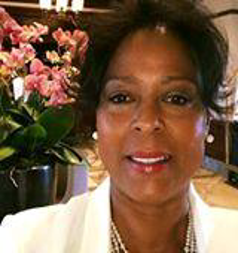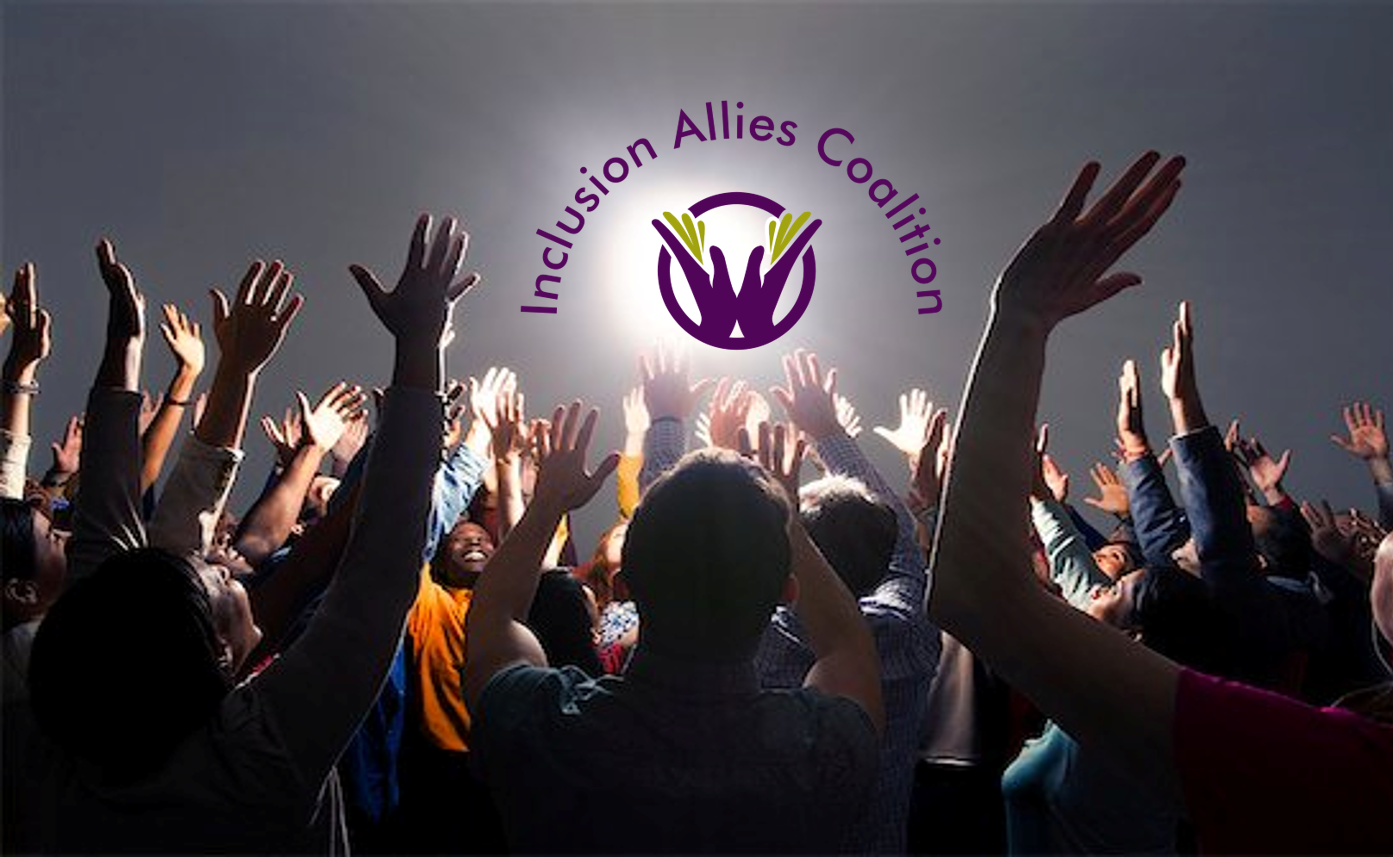By Miriam Muley, CEO and Author, The 85% Niche

I’ll always remember the day I fully came to terms with being black in Corporate America. I was freshly scrubbed out of Columbia University Graduate School of Business. Armed with my MBA, I envisioned myself as top-rated future CEO material. I had a few early successes under my belt and was feeling very confident that my time would soon come for a more senior role.
“You will never make it to the top,” were the words told to me in private by a white male manager. “The relationships here go way back and the old boy network is very much alive and well. You will never fit in.” His cold, steel-blue eyes stared at me, as I gathered the power of self-control to tell him that my work would speak for itself and provide a path for my success.
His words stung and hurt – but in many ways, were true. Although I was used to nearly always being one of the few black people in a meeting and certainly always being the only Afro Latina {1}. I was confident that I would be measured by the quality of my work and not by the color of my skin, my gender, or my family ancestry. I would recall my father’s words as a way of building my confidence: “Hay que adelantar la raza,” which means, “We have to advance the race.” While some regard this expression as rooted in Latino racism, I interpreted this as a push to be better and to excel despite the racial biases many people hold. After all, working in corporate America is about business and not personal, isn’t it? Aren’t we all committed to driving business results, increasing market share and delivering a healthy ROI for shareholders? Why should the color of one’s skin be a limitation for great ideas and an impediment to financial performance?
I’ve matured and while I remain confident at heart, I have learned that the roadblocks of racism and double standards people of diverse backgrounds experience are very visible and very much alive. Despite many well-intentioned efforts and financial investments by corporations to address workplace inclusion, the challenges remain. The systems, infrastructure, culture and leadership have not changed fast enough to clear the way for young, perhaps naïve, but emerging leaders, whose experiences are a source of competitive advantage.
Yes, black people occupy leadership roles, but not anywhere near their representation as college-degree holders in the U.S. The percentage of black students in college increased from 31% to 36% between 2000 and 2016; the percentage of Black students in medical school increased from 5.6% in 1980 to 7.7% in 2016; the percentage of black engineers receiving doctoral degrees increased 36% (2011 – 2016); and the number of black attorneys increased by 15% in the last 10 years (2009 vs. 2019).{2} Yet, black/African Americans occupy only 3.2% of the senior leadership roles at large
companies in the U.S. and just 0.8% of all Fortune 500 CEO positions, according to the Center for Talent Innovation.
Unconscious bias is certainly among the major obstacles impeding growth of black/African American employees in corporations coupled with a growing sense of white privilege. Studies have shown that more than other groups, African Americans experience bias more often and more overtly than other groups, are held to a higher standard of excellence, and are evaluated more negatively than white
leaders who perform equally well. {3} And white privilege, by definition, means having greater access to power and resources than people of color [in the same situation] do. {4}
What worked for me in my career was ultimately leaving the old boy’s network and finding a company culture that was aligned with my vision and potential. I joined another Fortune 100 company with greater P&L responsibility and leadership opportunity, and, for the first time, reported to a powerful black woman who was a VP. Life could not have been any better! The diversity in leadership and positive role-modeling coupled with my belief that at the end of the day, the work I produce is the most important, made all the difference in my success and mental well-being. This response to role-modeling has been validated in research. Specifically, The Center for Talent and Innovation reports that when you have diverse individuals in top jobs, employees are 64% less likely to perceive bias and 19% more likely to be engaged.
Later in my career, I took the entrepreneurial leap from corporate executive to solopreneur and have dedicated my professional life as CEO of The 85% Niche, a global marketing, diversity and inclusion consultancy, to communicate and advance the needs of women, women of color and broadly diverse groups – as consumers, employees and entrepreneurs.
It will take more than 200 years without active intervention for gender equality in the workplace, but it will take much longer for black people to be fairly represented in the workplace. We don’t have the luxury of waiting that long and of allowing old boy’s networks to interfere with performance. Businesses demand the full engagement of all employees to perform and not just a select few. {5}

Miriam Muléy is an author, marketing, diversity and inclusion consultant and CEO of The 85% Niche
1 Afro Latina – one of the 22 million+ Afro Latinos in the U.S. whose racial ancestry is from Africa but whose cultural roots are from a Spanish-speaking country in the Caribbean or Latin America.
2 https://nces.ed.gov/programs/raceindicators/indicator_REA.asp;
https://www.usatoday.com/story/news/health/2019/02/28/medical-school-student-african-american-enrollment-black-doctors-
health-disparity/2841925002/; https://www.aplu.org/library/the-2018-status-report-on-engineering-education-a-snapshot-of-
diversity-in-degrees-conferred-in-engineering/File;
https://www.americanbar.org/content/dam/aba/administrative/market_research/total-national-lawyer-population-1878-2019.pdf; https://www.americanbar.org/content/dam/aba/administrative/market_research/national-lawyer-population-demographics-2009- 2019.pdf
5 https://culturalq.com/wp-content/uploads/2019/07/The-Cost-of-Bias-DisruptBias-DriveValue_Infographic-CTI.pdf
How One White, Privileged (Now Enlightened) Man Values Differences by Lewis Brown Griggs
I grew up in a family with fourteen generations of wealth and privilege since arrival as immigrants on the Mayflower and the subsequent co-creation of three significant corporations and the states of Minnesota and Washington. After earning a Political Science BA from Amherst College in 1970, I worked in the Nixon Administration, and after earning a Stanford MBA in 1980, I worked in Republican Congressman Pete McCloskey’s US Senate campaign. Thus, as an Episcopalian and Republican WASP with elite ‘privilege’, it required two near-death experiences to discover that we are simultaneously all One and each with unique individual gifts and differences.
I had the recent honor of visiting both The Legacy Museum and The National Memorial for Peace and Justice in Montgomery Alabama. They are together the nation’s first museum and memorial dedicated to the legacy of enslaved Black people further terrorized after the Civil War by lynching, humiliated by racial segregation and Jim Crow laws, and burdened even still today with presumptions of guilt and police violence. It was not until I walked solemnly through the museum and the memorial that my long-standing awareness and sadness for the overt racism that Black people have experienced and continue to experience became just as deeply and painfully felt as had my feelings for Holocaust victims when I visited Auschwitz with my German American wife.
I also had the opportunity this summer to see the film, “Harriet” – the story of the Underground Railroad and the heroism one woman displayed in safely bringing hundreds of slaves to freedom. How disappointed I was during this year’s Oscar ceremony that neither the film, the actor, Cynthia Erivo, nor the song, “Stand Up” received an award. This another painful example of how the entertainment industry is slow to acknowledge the legacy of enslaved Black people and marginalized communities in America.
My core learning and teaching continues to be that our legal and behavioral compliance is never enough to maximize the valuing and utilization of the gifts of our differences to enhance our Personal & Interpersonal & Organizational Effectiveness.
Lewis Brown Griggs is a diversity training veteran with over 35 years of experience who is not only
regarded as a pioneer in diversity (Griggs.com) but is also a Certified Professional Co-Active Leadership Coach and a survivor of two near-death experiences (TEDx: ‘The Gift of Near Death’).

Thank you for sharing your perspectives. At some point I hope our country will recognize we need to celebrate Black History and the contributions of our African heritage brothers and sisters every day, as well as teach our children about the true history of enslaved people in the U.S.
LikeLike
From Lewis Griggs
Another thought on Black History Month:
It was so disappointing that the Oscars did not even nominate much less award Best Picture to HARRIET … or even award Best Actress to Cynthia Erivo whose representation of Harriet Tubman for me was brilliant … or at least award Best Original Song for STAND UP! ☹
So at least as an important part of celebrating Black History Month together all who haven’t yet should see the movie ‘Harriet’… and if not possible then watch and listen to this version of Cynthia singing the song with the words on screen and with scenes from the film running! 🙂
https://youtu.be/sn19xvfoXvk“
LikeLike
It’s more than frustrating to wake up each morning and wonder in what way we, the people of the African diaspora, will be discounted, abused and made to feel invisible. You wonder what will be taken away next. Will it be your life, your child, your job, your dream… what?
Óscar Sunday was just another in the series of insults we live with. Harriet, a beautifully executed piece of our history told in an amazing manner with a wonderful song, sung by a beautiful voice… and nothing. Nothing.
Thank you, Lewis for “seeing us”.
LikeLike
Andrea so well said, it matters to be seen and true effective allies are vocal and visible as Lewis demonstrated in this authentic and caring comment.
LikeLike